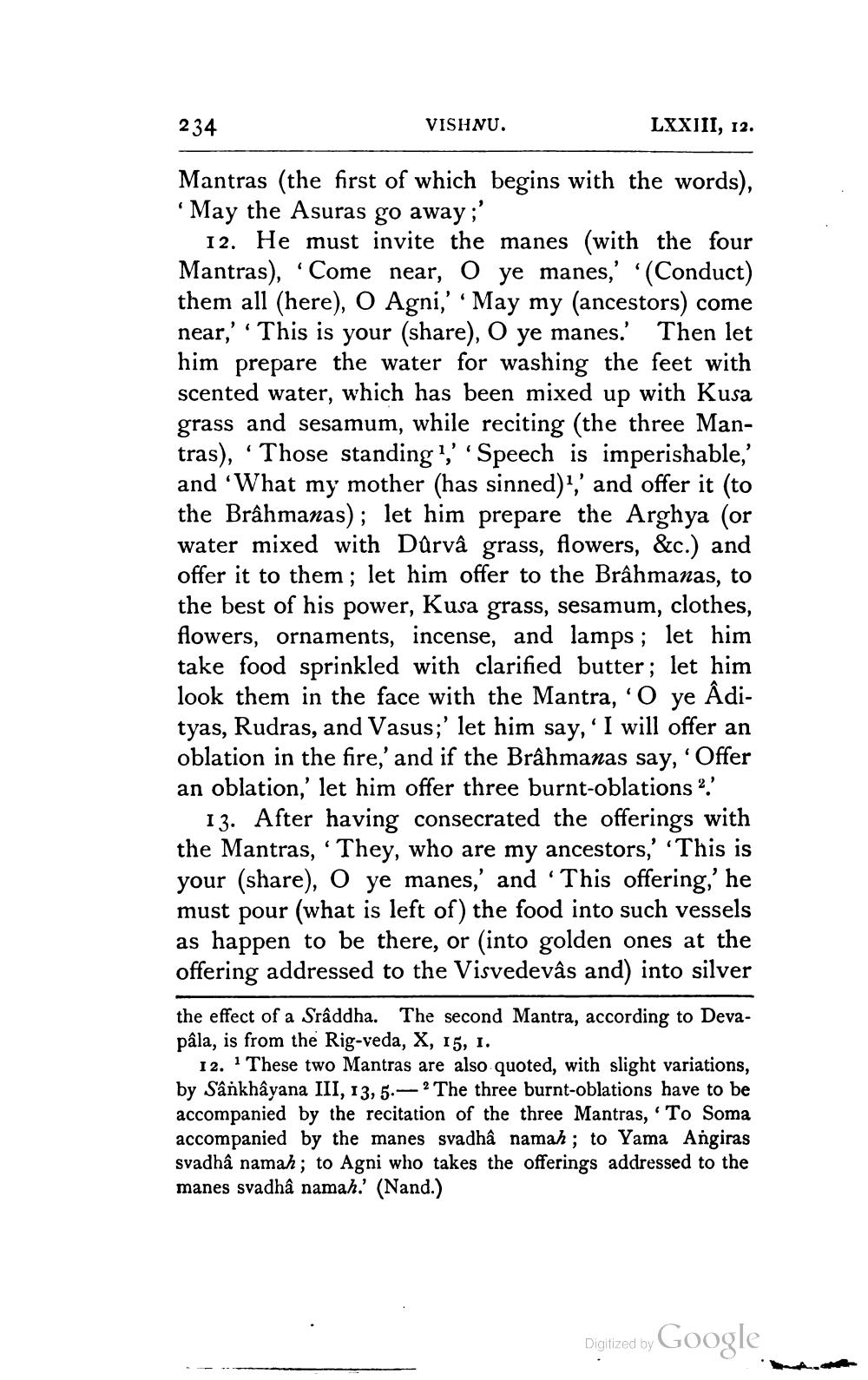________________
234
VISHNU.
LXXIII, 12.
Mantras (the first of which begins with the words), May the Asuras go away;'
12. He must invite the manes (with the four Mantras), 'Come near, Oye manes,' '(Conduct) them all (here), O Agni,' « May my (ancestors) come near,' 'This is your (share), O ye manes. Then let him prepare the water for washing the feet with scented water, which has been mixed up with Kusa grass and sesamum, while reciting (the three Mantras), 'Those standing ?,' 'Speech is imperishable,' and 'What my mother (has sinned)?,' and offer it (to the Brâhmanas); let him prepare the Arghya (or water mixed with Dürvâ grass, flowers, &c.) and offer it to them; let him offer to the Brâhmanas, to the best of his power, Kusa grass, sesamum, clothes, flowers, ornaments, incense, and lamps ; let him take food sprinkled with clarified butter; let him look them in the face with the Mantra, 'O ye Âdityas, Rudras, and Vasus;' let him say, 'I will offer an oblation in the fire,' and if the Brâhmanas say, 'Offer an oblation,' let him offer three burnt-oblations ?
13. After having consecrated the offerings with the Mantras, ‘They, who are my ancestors,' 'This is your (share), O ye manes,' and 'This offering,' he must pour (what is left of) the food into such vessels as happen to be there, or (into golden ones at the offering addressed to the Visvedevâs and) into silver
the effect of a Sraddha. The second Mantra, according to Devapala, is from the Rig-veda, X, 15, 1.
12. "These two Mantras are also quoted, with slight variations, by Sankhayana III, 13, 5.- ? The three burnt-oblations have to be accompanied by the recitation of the three Mantras, ' To Soma accompanied by the manes svadhâ namah; to Yama Angiras svadhâ namah; to Agni who takes the offerings addressed to the manes svadhâ namah.' (Nand.)
Digitized by Google
Digitized by




